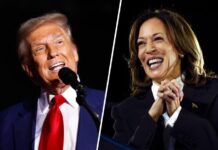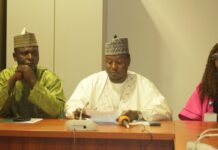Ahead of the Planned Nationwide Protest, scheduled for August 1 to 10, the National Human Rights Commission (NHRC) has issued an advisory on the protection of the right to freedom of association and assembly in Nigeria. This was contained in a statement signed by Fatima Agwai Mohammed, Deputy Director, Communications.
The advisory, which was issued by the Executive Secretary of the Commission Dr. Tony Ojukwu OFR SAN is pursuant to Section 5(l)(m)(o) of the National Human Rights Commission (Amendment) Act, 2010. It aims to promote and protect the human rights of all Nigerians.
The Executive Secretary emphasized the importance of the right to freedom of association and assembly, citing international and regional human rights instruments that guarantee this right.
The advisory highlights the principles of indivisibility, inter-relatedness, and interdependence of all human rights, equality, non-discrimination, and neutrality and independence.
The advisory also provides guidance on the application of the right to freedom of association and assembly, including the roles of state and non-state actors, law enforcement, and civil society organizations. It emphasizes the need for peaceful and lawful protests, notification requirements, and the use of force by law enforcement.
The NHRC makes policy recommendations to the federal and state governments, the Nigerian Police, and other law enforcement, security, and armed forces.
These recommendations include upholding fundamental human rights, facilitating peaceful assemblies, and respecting the rights of protesters.
The NHRC also calls on protest leaders to ensure peaceful and law-abiding protests, cooperate with law enforcement, and avoid actions that could endanger public safety or damage private and public properties.
The Learned Silk said NHRC will operate a Situation Room with a toll-free number 6472 for calls on Human Rights Violations. He further stated that the Commission will deploy its protective and promotional mandates to monitor every protest in Nigeria and ensure that human rights principles are observed by state and non-state actors.
END













































